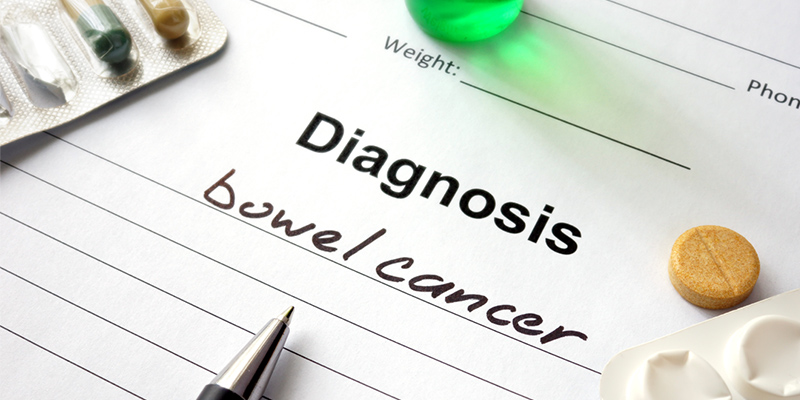Bowel cancer screening reduces death
By Candy Gibson

New research led by UniSA shows just how effective bowel cancer screening is in helping to reduce the number of bowel cancer deaths by up to 45 per cent.
Bowel (or colorectal) cancer kills almost 6000 people in Australia each year and 700,000 worldwide, but this number would be much higher without pre-diagnostic colonoscopies, a study has found.
Data from 12,906 bowel cancer patients indicate that faecal occult blood testing (FOBT) with a follow-up colonoscopy plays a key role in catching the disease early, before symptoms appear.
Researchers from UniSA’s Cancer Epidemiology and Population Health Research Group found that having one pre-diagnostic colonoscopy was associated with a 17 per cent reduction in cancer deaths; a 27 per cent reduction with two pre-diagnostic colonoscopy procedures and 45 per cent for three or more.
Of the 12,906 records analysed, 37 per cent of the patients had pre-diagnostic colonoscopies and were more likely to live longer than those who were diagnosed after experiencing cancer symptoms.
Dr Ming Li, one of the study leaders, says that in South Australia, where the study was undertaken, those patients who had pre-diagnostic colonoscopies showed a “significant increase” in survival.
“The risk of colorectal cancer death reduces step-wise with increasing numbers of colonoscopy examinations before symptoms appear, cutting the mortality rate from 17 per cent to 45 per cent,” she says.
“Our findings show the value of the National Bowel Screening Program, which is now being rolled out to everyone in Australia over the age of 50 on a two-yearly basis. It involves doing a simple, non-invasive faecal occult blood test (FOBT) which, if positive, is followed up with a colonoscopy.”
Bowel cancer causes the second highest number of cancer deaths in Australia after lung cancer, but 90 per cent can be cured if detected early, according to the Cancer Council.
Currently, just 39 per cent of the eligible population in Australia undertake a FOBT if invited, which is predicted to prevent 92,000 cancer cases in the next 20 years. If the participation rate were to increase to 60 per cent, an additional 24,300 bowel cancer deaths would be prevented, the Cancer Council estimates.
The study has been published in BMC Cancer.
Meanwhile, UniSA has been involved with an international study led by the University of Newcastle and the Vietnam Cancer Institute, which has revealed that many cancer patients believe ‘bad luck’ or fate is a factor in their health.
The study compared the perceptions between 585 cancer patients in Australia and Vietnam, analysing differences across 25 possible beliefs about what may have caused their cancer.
Australian cancer patients identified ‘bad luck’ or fate as the third most common perceived cause of their cancer – behind age and family history.
Smoking, sun exposure, poor diet, alcohol consumption and inadequate exercise are proven risk factors for many types of cancer, but researchers say this study shows that the message is not getting through to many patients.
UniSA Research Chair of Cancer Epidemiology and Population Health, Professor David Roder, says there are many misconceptions about what causes cancer.
“Unfortunately, people’s understanding of many cancer-related risk factors is modest to low. People’s beliefs about what may have caused their cancer are complex and likely to be impacted by multiple factors, including cultural beliefs,” he says.
For more information on this study, read the full media release here.
Other Stories
- UniSA marine scientist lands a big catch for fishing industry
- Could share housing be the answer for people as they age?
- Olympian and inspirational survivor awarded
- Ho ho hold the fries: holidays the highest risk time for family weight gain
- From the Vice Chancellor
- Achievements and Announcements
- Bowel cancer screening reduces death
- There is more to wine flavour than just tastebuds
- Understanding partner violence against young rural women
- Stormy waters ahead for coastal towns: what are the options?
- What will the complaint against the UN achieve?
- Innovation hot spot opens at UniSA
- The latest books from UniSA researchers
- Indigenous art, graduations, pedal prix and more




